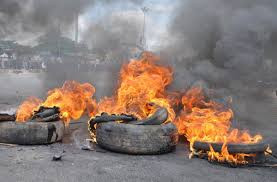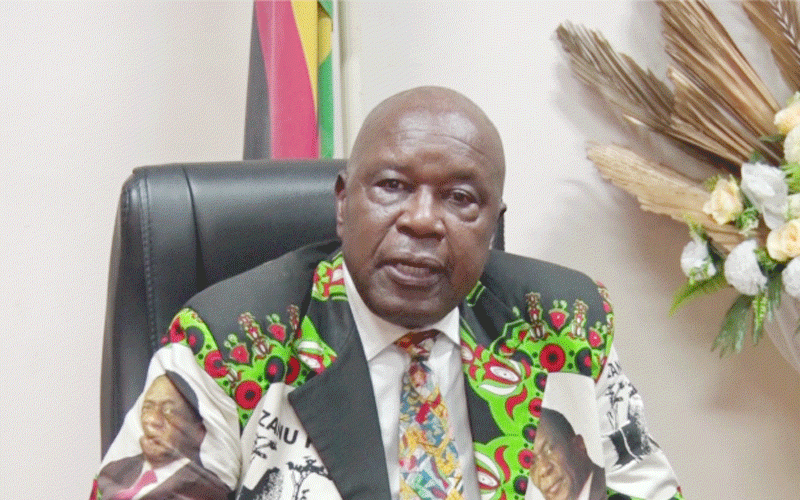Many Zimbabweans have expressed disappointment at the absence of the internationally prestigious Hifa in Harare which has gone off the radar in the past five years.
As we all know, music has always played a ubiquitous role in everyone on earth, be it in
Asia, Africa, America, Antarctica, Oceania, Europe or Australia.
The Harare International Festival of the Arts (Hifa) was an annual 6-day arts and culture celebration taking place in the capital city of Zimbabwe, Harare. It began in 1999 and was the most prominent showcase for Zimbabwean arts as well as a platform for performances and exhibitions by visiting international artistes and groups. Manuel Bagorro and his sister, Maria Wilson, were responsible for running this event.
The last Hifa event took place in 2018. Hifa Executive Director Maria Wilson said they cancelled the event after 2018 due to economic reasons.
In a statement, she said: “Zimbabwe is dealing with many important issues, both social and economic. In this context, the Festival cannot responsibly commit to presenting a viable event of the same quality and impact that Hifa is known for this year. This expensive exercise includes flying- in of foreign artistes, paying for their immigration work permits , paying artiste’ fees as well as accommodating the artistes.”
The festival powerfully engaged local, regional and international artistes for Zimbabwe’s cultural diversity and capacity to achieve the highest standards of artistic presentation.
Hifa was widely acknowledged as one of the best arts and culture initiatives on the continent, bringing together corporate investors, embassy and donor partners, local and visiting artistes, large and enthusiastic audiences, and the media.
Given the magical moments we were treated to in the past from local, regional and international musicians, music lovers were spoiled for choice at Hifa. Performances included treats from groups and individual musicians such as Oliver Mtukudzi, Mokoomba, Salif Keita, Angelique Kidjo, Afro- Japanese Music and many other artistes from the rest of the world.
However, sadly, Hifa is no more.
Artistic movement is now in Nigeria in the form of what they call Felabration. Next month, all roads will be leading to Lagos, Nigeria. Felabration, the annual celebration of Fela Anikulapo Kuti’s life, music, and legacy, has long been a cultural touchpoint for music enthusiasts, activists, artistes, and fans worldwide.
Indeed, the pioneer of Afro-beats, Fela Ransome Kuti may be dead, but his influence in this genre lives on as it has empowered Nigeria’s young artistes such as Burna Boy, Wizkid and Davido. Nigerian Felabration, is held annually to celebrate the music of internationally renowned Afro-beat musician, Fela Kuti. This annual festival, which takes place in October in Lagos, Nigeria, attracts thousands of visitors from around the world.
It features a host of Nigerian artistes, including some of the world’s most prominent Afro-beat groups and has become an integral part of Nigerian music culture. This and other festivals serve to promote the music of Fela Kuti and the Nigerian music industry, providing both local and international audiences with a platform to experience and appreciate the country’s music.
The organisers of Felabration have announced that this year’s edition of the annual music festival in memory and celebration of Fela Anikulapo-Kuti will be held from October 14 to October 20, 2024.
Yeni Kuti, Head of the Felabration Organising Committee, expressed her excitement for this year’s theme, stating: “With ‘Look and Laugh,’ we honour Fela’s legacy by embracing his message of resilience and expression. In a country grappling with record levels of corruption, inflation, currency devaluation, and rising food and fuel prices, this year’s theme takes on renewed significance.
“Felabration 2024 aims to ignite conversations, provoke reflection, and inspire action, carrying forward Fela’s legacy of social consciousness and innovation through entertainment,” she added.
But, who is this Fela chap?
Fela Anikulapo Kuti the Nigerian Musician and activist (born on October 15, 1938 and died August 2, 1997) is credited with being the pioneer of Afro Beats.
Fela Anikulapo Kuti, whose full name is Olufela Olusegun Oludotin Ransome Kuti also known as Abami Eda, was a Nigerian musician, bandleader, composer, political activist, and Pan-Africanist. He is regarded as the pioneer of Afrobeats, a Nigerian music genre that combines West African music with American funk and jazz .
Fela is well known for his political songs such as Coffin For Head of State, Expensive Shit, Colonial Mentality, Teacher Don’t Teach Me Nonsense, International Thief Thief , Zombie and the big one, Lady.
Born to an Anglican minister and school headmaster and a mother who was a civil rights leader with such a fearsome reputation that she was known as, Fela’s transition from model young man to the anomalous voice of the masses remains the subject of conversation and study today.
After his secondary school in Nigeria, his parents sent him to London to study Medicine, but clearly aware it was not his way, he enrolled at the Trinity College of Music instead.
10 years later, Fela was back in Lagos. He opened up a bar and a performance arena called the Afro-Spot. His music, which he and Tony Allen had christened “Afrobeat” was a manifesto; a statement of the troubles that Nigerians and Africans faced, the state of the nation and a way out.
A large part of this featured attacks on Nigerian politicians, businessmen and the military rulers of the time who Fela accused of treating the people like lesser beings and mortgaging the nation’s future to foreign interests.
As one would expect, they paid attention, but it came to a head when, in 1977, Fela released Zombie, a mordant, unsparing attack on the Nigerian military and the culture that the institution had built and inculcated into its soldiers.
Using the zombie as a metaphor, Fela described Nigerian soldiers as a bunch of robots with no spine, waiting on orders from above as they marched like toy soldiers.
The song was one of Fela’s most instant hits, but from early on, it was clear that the Nigerian army was not a fan of it.
There are reports that soldiers would flog and punish record stores found playing the song in the loud manner that Lagos-based stores would do at the time.
Fela got so big in Nigeria that with the money he made, he decided to build his own compound which he called Kalakuta Republic. “Kalakuta” was a mockery of a prison cell named “Calcutta” that Fela inhabited. The name was originally derived from the infamous Black Hole of Calcutta dungeon in India.
In 1978, the pioneer of Afrobeats, Fela Anikulapo Kuti, married 27 women in one day.
He gave a piece of paper to his female band members requesting the names of those that would like to marry him. The entire twenty-seven female band members put down their names.
After getting their consent, Fela Kuti married the 27 women on the 20th of February, 1978, at the Parisona Hotel in Anthony, Lagos, with the blessings of 12 Ifa priests. It was alleged that some parents of the ladies objected to the marriage.
Fela married the women to protect and keep them together. The marriage ceremony was attended by Fela’s families, friends and other band members.
During the marriage ceremony, Fela rendered a short speech, pressed naira notes on his new wives’ foreheads and gave them marriage certificates. Fela embraced a rotation system of 12 wives at a time. After the marriage, Fela took his 27 wives to Ghana for honeymoon.
Fela Kuti – the Nigerian musician and activist – had riled the Nigerian government too much by 1977. On February 18, 1,000 armed soldiers stormed his communal compound, which he had christened the Kalakuta Republic. His mother was thrown from a window and subsequently died from her injuries and the compound was burned to the ground. Fela’s response? More songs attacking the regime, including Coffin for Head of State.
On the of February 18, 1977, over 1000 soldiers gathered at Kalakuta, Fela’s abode at No. 14A Agege Motor Road, Idi-Oro, Mushin.
There are varying reports of what had instigated this visit.
The soldiers claimed that they had come in search of one of Fela’s boys who had fought a Lance Corporal over a traffic violation and then fled into the commune.
Mabinuori Kayode Idowu, a member of Fela’s Young African Pioneers and the author of Fela: Why Blackman Carry Shit wrote in his book, “In reality, the soldiers had come for deeper vengeance; Fela’s refusal to participate in FESTAC, the publication of the YAP News condemning the introduction on our roads of an army horsewhip culture, and the uncompromising views as expressed in his (Fela) lyrics were the reasons behind the attack on Kalakuta Republic.”
Either way, after they were refused entry into the compound, the soldiers pulled down the gates and went on a rampage.
They set about chasing and flogging everyone in sight, destroying property, including recording and performing equipment, stashes of recorded music and valuable records.
In a matter of hours, soldiers had ravaged the entire building to the ground. Some of Fela’s wives would allege that they had been raped.
No one knows what transpired but as Yeni Kuti would later tell, they were in shock when they saw the Lion of Lisabi (Fela’s mother) thrown out of a second-storey window. She would later die from her wounds.
Members of Fela’s entourage were detained in prison where, for some, the torture continued.
Many of Fela’s band members became homeless after the devastating soldier attack on Fela’s commune (Kalakuta Republic).
The government’s attitude to the event was evident from the next morning. State-owned media avoided reporting the issue like a plague. Soldiers could be seen seizing and destroying copies of Punch and other newspapers which reported the incident.
However, in 1986, shortly after his release from prison, Fela Kuti divorced his 27 wives on the claim that marriage brings jealousy. It should be noted that they were not forced to leave his house after the divorce; some lived with him till his death in 1997.
Today’s Nigerian Afro-Beats stars such as multi-millionaires Wizkid, Davido and Burna Boy are all riding on the back of Fela Kuti’s Afro-Beats sensation. The organisers of Felabration have announced that the theme for this year’s edition is ‘Look and Laugh,’ an iconic song originally released by Fela Kuti in 1980 as part of his album ‘Coffin for Head of State,’ holds a special place in the hearts of many fans, as it remains a true and derisive reflection of the various faces of modern-day corruption. The lyrics subtly condemn self-serving actions and satirically calls on listeners to open their eyes to the truth and act against oppression.
Feedback: frezindi@gmail.com





